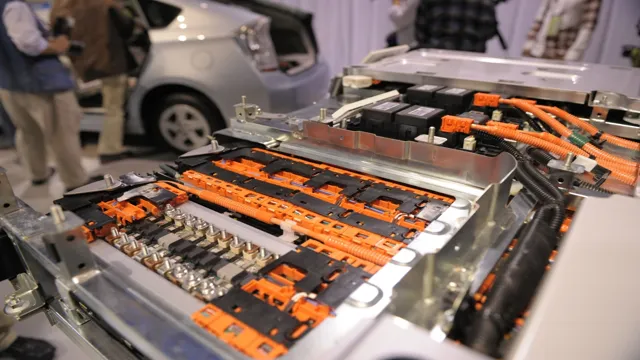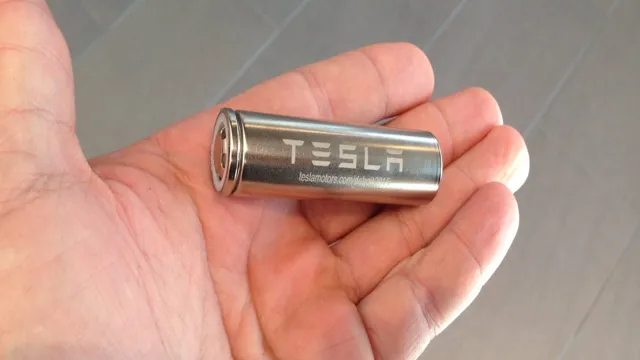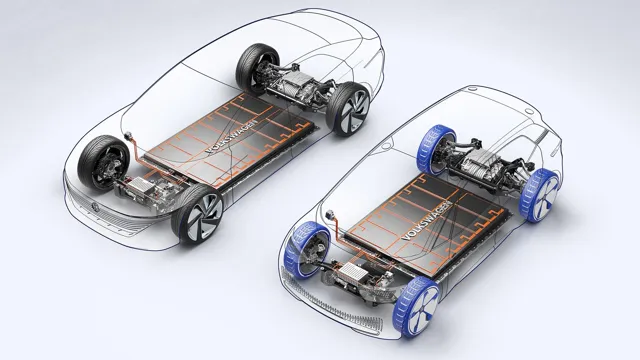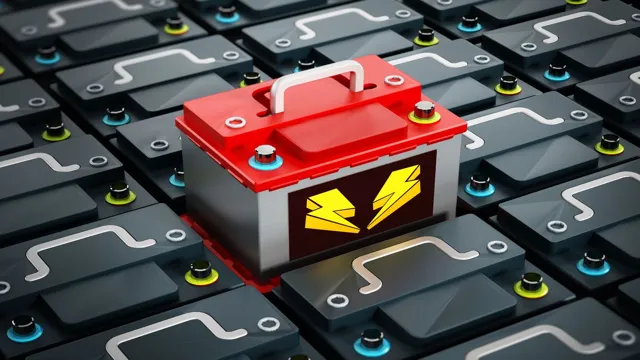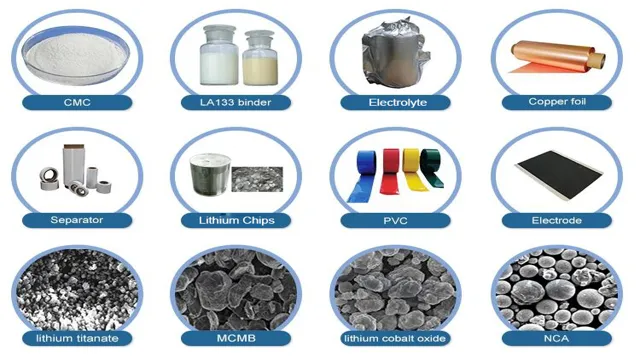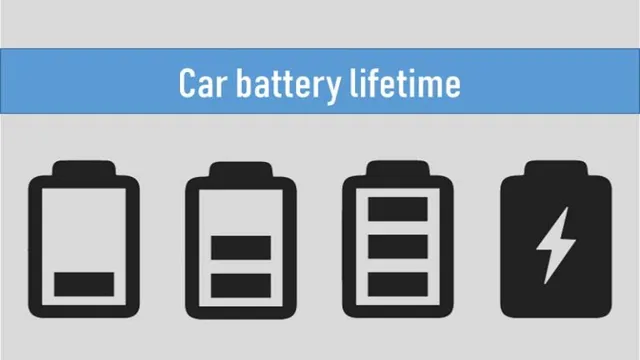Powering the Future: Why All-Electric Cars Are Switching to Lithium-ion Batteries
Electric cars are becoming increasingly popular due to their low environmental impact and reduced fuel costs. However, to power these vehicles, an efficient and reliable energy source is required. That’s where Lithium-ion batteries come in, and why they are ideal for electric cars.
This type of battery is well-suited for electric vehicles due to its high energy density, long lifespan, and low maintenance requirements. But what makes Lithium-ion batteries stand out, and why are they the best choice for powering electric cars? Let’s delve into the details.
Benefits of Using Lithium-ion Batteries
One of the biggest benefits of using all Lithium-ion batteries for electric car batteries is their energy efficiency. Compared to other battery types, Lithium-ion batteries have a higher energy density, meaning they can store more energy per kilogram of weight. This translates to longer driving ranges for electric cars and better overall performance.
Additionally, Lithium-ion batteries have a longer lifespan and maintain their charge better than other batteries. This means less downtime for charging and more time on the road for drivers. All in all, using Lithium-ion batteries for electric car batteries is a smart choice for those looking to improve their efficiency and performance while reducing their environmental impact.
Energy Density: More Power in Smaller Packages
Lithium-ion batteries have revolutionized the world of rechargeable batteries by offering several advantages over traditional batteries. One of the most significant benefits of using lithium-ion batteries is their high energy density, allowing them to store more power in smaller packages. This, in turn, makes them ideal for use in portable electronic devices such as smartphones, laptops, tablets, and cameras.
With their compact size and lightweight design, lithium-ion batteries are also ideal for use in electric cars and other vehicles. Lithium-ion batteries have a longer lifespan than traditional batteries, allowing users to recharge them more frequently without degrading their performance. Their ability to handle high current loads and quick charging times is also beneficial in various applications.
With the increasing demand for energy-efficient and sustainable technologies, lithium-ion batteries are likely to continue dominating the rechargeable battery market in the coming years.
Longer Lifespan: Fewer Replacements Required
Lithium-ion batteries come with many benefits, such as their longer lifespan, which ultimately leads to fewer replacements required. Unlike traditional batteries, which can easily become damaged and have a limited life, lithium-ion batteries are virtually maintenance-free and can last for several years. This means that they provide a reliable and cost-effective energy source for a variety of applications, from smartphones and laptops to electric vehicles and renewable energy storage systems.
As lithium-ion technology continues to advance, we can expect even longer lifespans and increased durability, which will further enhance the value of these batteries. So, if you’re looking for a long-lasting, environmentally-friendly and efficient power source, lithium-ion batteries offer a great option.
Higher Efficiency: Better Performance with Less Waste
Lithium-ion batteries have become increasingly popular in recent years, and for good reason. One of the biggest benefits of using these batteries is their higher efficiency, which leads to better performance while producing less waste. Compared to traditional lead-acid batteries, lithium-ion batteries have a much higher energy-to-weight ratio, meaning they can store more energy in a smaller size.
This makes them ideal for use in portable devices like laptops and smartphones, where space is limited. Additionally, lithium-ion batteries have a lower self-discharge rate, meaning they can hold a charge for longer periods of time without losing their capacity. This leads to better overall performance and longer-lasting battery life.
So whether you’re looking to power your favorite gadgets or power tools, lithium-ion batteries offer a great solution for better efficiency and performance.
Lithium-Ion Battery Types for Electric Cars
When it comes to the electric car battery, all lithium-ion batteries are becoming increasingly popular for their many benefits. Lithium-ion batteries are lightweight, have a high energy density, and can be charged quickly. There are several types of lithium-ion batteries used in electric cars, including nickel-cobalt-manganese (NCM), nickel-cobalt-aluminum (NCA), and lithium iron phosphate (LFP).
NCM batteries are commonly used in electric cars because they offer a balance of high energy density and long lifespan. NCA batteries are also used in high-end electric cars because they offer even higher energy density than NCM batteries. LFP batteries, on the other hand, are known for their exceptional safety and long lifespan, making them a good choice for commercial vehicles.
Regardless of the type of lithium-ion battery used, it’s clear that they are becoming the preferred choice for electric car manufacturers due to their efficiency, longevity, and eco-friendliness.
Lithium-Cobalt-Oxide (LCO)
LCO, Lithium-Ion Battery Types When looking at lithium-ion battery types for electric cars, one option is Lithium-Cobalt-Oxide (LCO). This type of battery has been widely used in electronic devices and is known for its high energy density, which means it can store a lot of power in a small space. However, LCO batteries are also known for being prone to overheating and instability, which can be a safety issue.
To combat this, manufacturers often use advanced temperature and voltage control systems to prevent the batteries from overheating. While LCO batteries are not as commonly used in electric cars as other types like Lithium-Iron-Phosphate (LFP) or Lithium-Nickel-Manganese-Cobalt-Oxide (NMC), they can offer a higher energy density and therefore provide greater driving range. Ultimately, the choice of which type of lithium-ion battery to use in an electric car will depend on a variety of factors, including cost and safety considerations.
Lithium-Manganese-Oxide (LMO)
Lithium-Manganese-Oxide (LMO), Lithium-Ion Battery Types Lithium-Manganese-Oxide (LMO) is a type of Lithium-Ion battery that’s widely used in electric cars due to its high energy density and relatively low cost. This battery type has a positive electrode made up of lithium-manganese oxide, a negative electrode made up of graphite, and an electrolyte consisting of an organic solvent and lithium salt. LMO batteries are known for their high thermal stability, which makes them safer than other Lithium-Ion battery types.
They also have a higher charge and discharge rate than other batteries, which means they can store and discharge energy faster, making them ideal for electric cars. Another advantage of LMO batteries is that they have a longer lifespan than other battery types, which makes them a more cost-effective choice in the long run. However, their energy density is not as high as other battery types, which means electric cars using LMO batteries may have a shorter range.
Overall, Lithium-Manganese-Oxide batteries are a reliable and cost-effective choice for the electrification of the automotive industry.
Lithium-Iron-Phosphate (LFP)
Lithium-Iron-Phosphate (LFP) Electric cars rely heavily on Lithium-Ion batteries for their power source. There are different types of Lithium-Ion batteries, each with their unique characteristics and advantages. One of these is the Lithium-Iron-Phosphate or LFP battery.
It is a type of Lithium-Ion battery that uses iron phosphate as its cathode material. Unlike other Lithium-Ion batteries, LFP is much safer and has a longer lifespan, making it perfect for electric cars and other applications that require high energy density and safety. The LFP battery is known for its superb thermal stability, low toxicity, and low risk of explosion, making it a better alternative to traditional Lithium-Ion batteries.
It also has a high power density, ensuring that electric cars can operate more efficiently and travel longer distances on a single charge. In summary, the LFP battery is a great option for electric car manufacturers looking for a safer and more reliable way to power their vehicles.
Selecting the Right Lithium-ion Battery for Your Electric Car
When choosing the right lithium-ion battery for your electric car, there are several factors you should consider to ensure that you get the best performance and longevity out of your vehicle. Firstly, it is crucial to ensure that you purchase an all lithium-ion battery, as these provide better energy density and are more lightweight than other battery types. Beyond this, you should also consider the battery’s capacity, voltage, and discharge rate, all of which will impact the range of your car and its overall functionality.
It is also important to consider the manufacturer and quality controls that are in place, as well as the price and warranty that comes with the battery. Choosing the right lithium-ion battery can make a significant impact on the performance and longevity of your electric car, so take your time and consider all the options available before making your final decision.
Considerations for Range and Performance Needs
When it comes to selecting the right lithium-ion battery for your electric car, there are a variety of factors to consider. One of the most important is the range and performance needs of your vehicle. If you plan to use your car for daily commutes or short trips, you may not require a battery with a long range or high performance capabilities.
However, if you frequently travel long distances or want a vehicle with speedy acceleration and high speeds, you’ll need a battery that can accommodate these needs. Additionally, the size and weight of the battery can impact both range and performance. A larger, heavier battery may provide greater range, but could negatively affect the handling and acceleration of the vehicle.
Finding a balance between these factors is key to selecting the right lithium-ion battery for your electric car.
Factor in Long-Term Costs of Battery Replacement
When it comes to owning an electric car, selecting the right lithium-ion battery is crucial. Not all batteries are created equal, and it’s important to factor in the long-term costs of battery replacement. While the initial cost of a battery may seem steep, investing in a high-quality, durable battery will save you money down the road.
A cheaper battery may seem like a good deal at first, but it may not last as long or provide the power that you need. It’s important to do your research and consider factors such as the battery’s capacity, voltage, and cycle life. By selecting the right battery, you can ensure that your electric car is reliable and cost-effective in the long run.
So, when shopping for an electric car, don’t forget to pay attention to the battery and invest in a high-quality lithium-ion battery that will meet your needs.
Conclusion: Lithium-ion Batteries Powering the Future of Electric Cars
In conclusion, it’s no secret that lithium-ion batteries have revolutionized the world of electric cars. With their high energy density, long lifespan, and ability to recharge quickly, they’ve made it possible for us to drive longer and further than ever before. But don’t be fooled – lithium-ion batteries aren’t just a flash in the pan.
Thanks to ongoing research and development, they’re getting better all the time. So whether you’re a die-hard electric car enthusiast or just curious about the future of transportation, it’s clear that lithium-ion batteries will continue to play a vital role in powering our vehicles for years to come.”
FAQs
How do lithium ion batteries differ from other types of electric car batteries?
Lithium ion batteries have a higher energy density and longer lifespan compared to other electric car battery types.
Are all electric car batteries made using lithium ion technology?
No, electric car batteries can also be made using other technologies such as Nickel-Metal Hydride (NiMH) or Lithium Polymer (Li-Po).
What is the typical lifespan of a lithium ion battery used in an electric car?
The lifespan of a lithium ion battery used in an electric car can vary significantly based on usage patterns, but is typically around 8-10 years.
Can lithium ion batteries be recycled for use in other applications?
Yes, lithium ion batteries can be recycled and their component materials can be used to create new batteries or other products.
